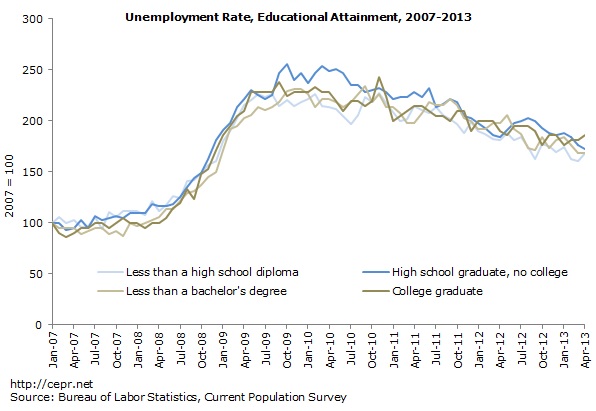May 04, 2013
A NYT piece headlined, “college grads fare well in job market even through recession,” painted a misleading picture of the job market facing college grads in the downturn. First, the claim at the center of the piece, that college grads have gotten the bulk of the jobs in this recovery, is badly distorted by the pattern of retirements. The aging baby boomers who are leaving the labor force are much less likely to be college grads than the young people just entering, so even if there were no change in labor market conditions we would expect to see the share of college educated people increase among the employed. This effect is increased further as a result of the fact that less educated workers are likely to leave the work force at an earlier age because more of them work at physically demanding jobs.
In terms of relative changes in unemployment rates, college grads have fared no better than anyone else. In fact, they have done slightly worse than the least educated workers, those without high school degrees.

Finally, the claim about the returns to a college degree are misleading, especially for men. While on average men with college degrees get far higher incomes than those with just a high school degree, there is a wide degree of dispersion as shown by my colleague John Schmitt and Heather Boushey.. As a result, a large percentage of college grads earn lower wages than many high school grads. For this reason, the marginal student who is considering attending college may have good reason to question whether it will pay off for him. It would have been useful if this piece had spent more time discussing the specifics of this issue.







Comments